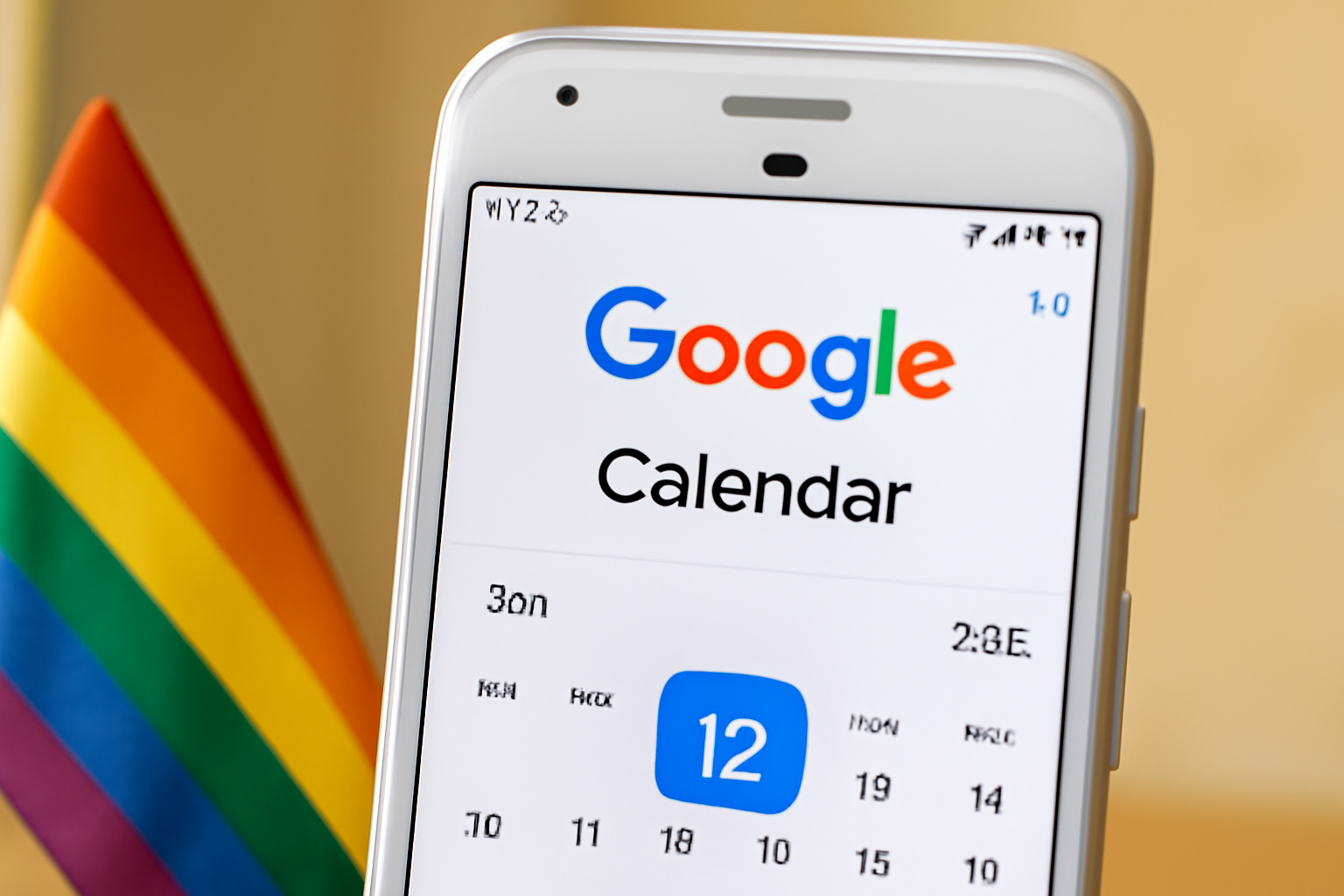
The Google Calendar app has recently stopped listing various cultural observances, including LGBTQ+ Pride Month, Black History Month, Women’s History Month, Hispanic Heritage Month, and Indigenous Peoples Month. This move has ignited discussions and criticism from various parties who see the omission as a response to external pressures.
Google explained that the decision to remove these observances was due to sustainability issues. According to a statement from a Google representative, Madison Cushman Veld, maintaining a diverse range of cultural moments for numerous countries was not a scalable process. Veld mentioned that the Calendar team had begun manually adding these events years ago based on user feedback, but the process was becoming impractical.
Community Reactions and Accusations
The change in Google's Calendar app has sparked a wave of criticism from users. On forums, some users accused Google of capitulating to right-wing pressures that have been campaigning against diversity and inclusion efforts. One commenter noted, "They are trying to erase anyone who isn’t a cis white male," highlighting the perceived political implications of Google's decision.
These reactions come amidst a broader national conversation about diversity, equity, and inclusion (DEI) initiatives. Recently, there has been increased scrutiny and opposition towards such efforts, with figures like former President Donald Trump vocalizing criticisms of DEI policies. In this context, some see Google's actions as aligning with a broader trend of retreat from diversity commitments.
The Broader Context of DEI Efforts
Google is not alone in reevaluating its approach to DEI. The company has also scaled back its reports on DEI commitments in filings with the Securities and Exchange Commission. Moreover, Google announced it would no longer pursue specific hiring goals for underrepresented groups, reflecting a shift in its corporate policies.
Despite this trend among corporations, consumer support for companies that uphold diversity and inclusion remains strong. Data indicates that many consumers prefer businesses that maintain their DEI policies, suggesting that such commitments can also be beneficial from a business perspective.
Legal and Cultural Landscape
Amidst these developments, legal experts have weighed in on the implications of changing DEI policies. Labor law attorney Mark S. Spring pointed out that certain cultural observances could be permissible under legal guidelines, provided they do not engage in exclusion or discrimination. This includes widely recognized events like Black History Month, which can promote awareness and celebrate diversity without crossing legal boundaries.
These legal interpretations highlight the complexities companies face in navigating DEI issues. As public sentiment and legal frameworks continue to evolve, businesses like Google must balance their operational strategies with societal and consumer expectations.
Community Engagement and Moving Forward
For those advocating for diverse cultural recognition, Google's recent changes have prompted calls for continued community engagement. Many argue that it is crucial for individuals and organizations to actively participate in recognizing and supporting cultural observances, even if major platforms like Google choose not to highlight them.
One way to stay informed and connected with these cultural and community issues is through newsletters and community platforms. Engaging with grassroots movements and local organizations can help ensure that diverse voices and histories remain visible and celebrated, regardless of corporate policies.
While the debate over Google's decision continues, it serves as a reminder of the ongoing challenges and responsibilities regarding diversity and inclusion in tech and beyond. As companies navigate these complex issues, it will be vital for them to stay attuned to the needs and values of their communities and consumers.
For those interested in following developments in the LGBTQ+ community and related topics, subscribing to dedicated newsletters can provide valuable insights and updates. These resources can help individuals stay connected and informed about the events and issues that shape their communities both locally and globally.
Related Posts
Pride Month in Latin America: Protests and Demands for Equality
**Celebrating Pride and advocating LGBTQ+ rights in Latin America** Pride Month in Latin America was a lively mix where celebration met activism. Communities united, not just throwing a party but making a stand—demanding equality and pushing governments toward better protection and rights recognition. Throughout Latin America, pride events erupted in marches and cultural displays, each with a c [...]
Transgender Erasure Actions Implemented by National Park Service
```html Trump administration's impact on national park service and transgender recognition The Trump administration made notable moves in undermining transgender representation, which included directing agencies like National Park Service not include "T" and "Q" when they refered “LGBTQ” in any official communication. This move seems part a broader plan by this administration aimed at reducin [...]
Drag Night Extravaganza: Daddies & Baddies at Atlantic City's Anchor Rock Club
Atlantic City, NJ, isn't just about its casinos and boardwalk—it's a hub bursting with energy and entertainment. One event that truly captures this spirit? The "Daddies & Baddies" drag night at Anchor Rock Club. This vibrant night celebrates amateur drag in all its glory, offering a kaleidoscope display where creativity and community unite. If you're looking where inclusivity and creativity take [...]